Science Salon
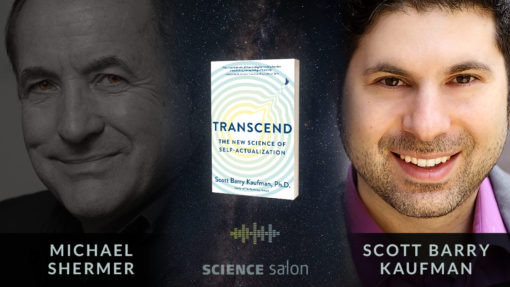
In Science Salon # 111 Michael Shermer speaks with psychologist Scott Barry Kaufman about his book Transcend: The New Science of Self-Actualization. Kaufman picks up where Abraham Maslow left off, unraveling the mysteries of his unfinished theory of transcendence, and integrating these ideas with the latest research on attachment, connection, creativity, love, purpose and other building blocks of a life well lived.
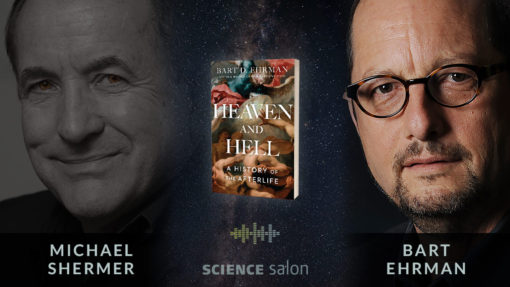
Nearly everyone wonders about what, if anything, comes after death. In Science Salon # 110 Michael Shermer speaks with Bart Ehrman about his book Heaven and Hell: A History of the Afterlife in which Ehrman investigates the powerful instincts that gave rise to the common ideas of heaven and hell and that help them endure.
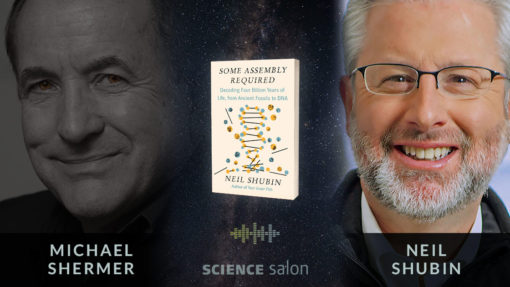
In Science Salon # 109 Michael Shermer speaks with Neil Shubin about his new book Some Assembly Required: Decoding Four Billion Years of Life, from Ancient Fossils to DNA — a lively and accessible account of the great transformations in the history of life on Earth.
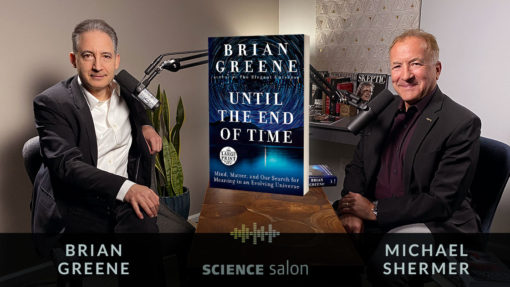
Until the End of Time is Brian Greene’s breathtaking new exploration of the cosmos and our quest to find meaning in the face of this vast expanse. Greene takes us on a journey from the big bang to the end of time, exploring how lasting structures formed, how life and mind emerged, and how we grapple with our existence through narrative, myth, religion, creative expression, science, the quest for truth, and a deep longing for the eternal.
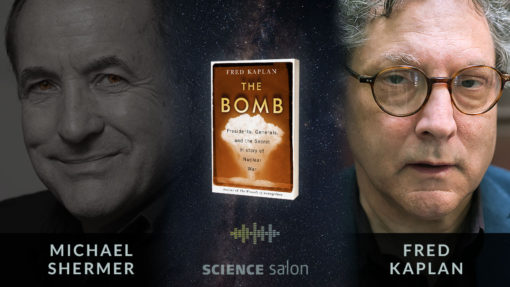
The Bomb is Fred Kaplan’s definitive history of American policy on nuclear war — and Presidents’ actions in nuclear crises — from Truman to Trump. Kaplan takes us into the White House Situation Room, the Joint Chiefs of Staff’s “Tank” in the Pentagon, and the vast chambers of Strategic Command to bring us the untold stories — based on exclusive interviews and previously classified documents — of how America’s presidents and generals have thought about, threatened, broached, and just barely…
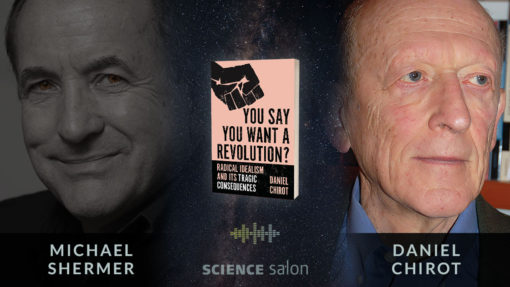
Why have so many of the iconic revolutions of modern times ended in bloody tragedies? What lessons can be drawn from these failures today, in a world where political extremism is on the rise and rational reform based on moderation and compromise often seems impossible to achieve? Daniel Chirot examines a wide range of right- and left-wing revolutions around the world — from the late eighteenth century to today — to provide important new answers to these critical questions.
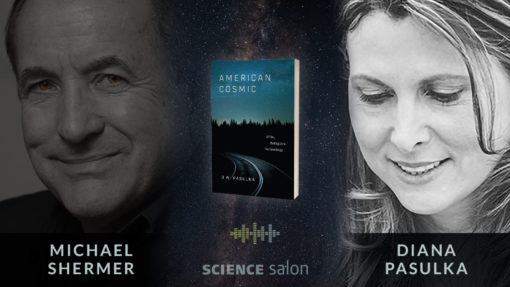
More than half of American adults and more than 75 percent of young Americans believe in intelligent extraterrestrial life. This level of belief rivals that of belief in God. In Science Salon # 105 Michael Shermer speaks with Diana Pasulka about her book: American Cosmic: UFOs, Religion, Technology.
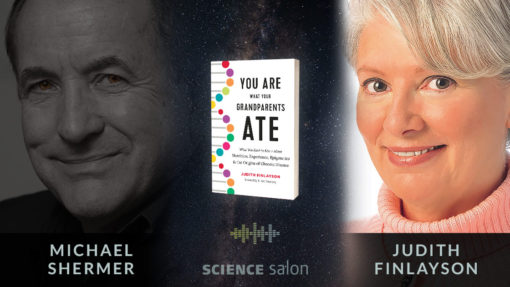
How many of the risks for chronic diseases, including obesity, type 2 diabetes, high blood pressure, heart disease and dementia, can be traced back to your first 1,000 days of existence, from the moment you were conceived? Shermer and Finlayson discuss: epigenetics • epidemiology • difficulty determining causality in medical sciences • why correlation is not necessarily causation, but how it can be used to advise on diet and lifestyle changes • fruits and vegetables or meat and fat?
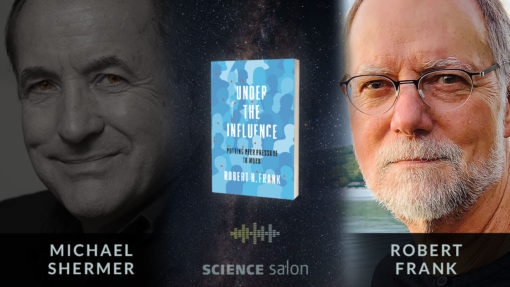
Shermer and Frank discuss: luck and circumstances • peer pressure • free will • self-control • happiness vs. purpose • utilitarianism vs. natural rights theory • abortion, capital punishment, polygamy, prostitution, and the selling of organs • behavioral contagions: smoking, problem drinking, obesity, tax cheating, bullying, and wasteful energy use • same-sex marriage • climate change • Universal Basic Income, and more…
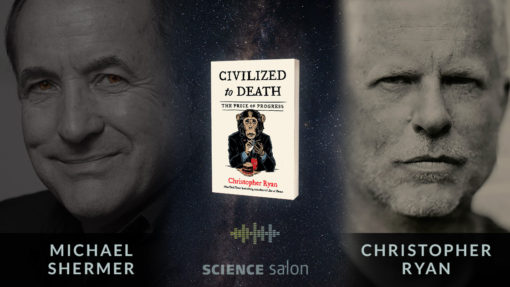
Most of us have instinctive evidence the world is ending — balmy December days, face-to-face conversation replaced with heads-to-screens zomboidism, a world at constant war, a political system in disarray. We hear some myths and lies so frequently that they feel like truths. You’re lucky to be alive here and now. Well, maybe… Civilized to Death counters the idea that progress is inherently good, arguing that the “progress” defining our age is analogous to an advancing disease.
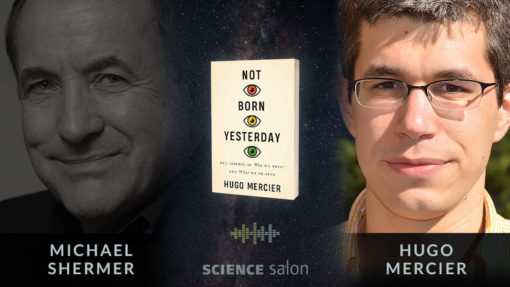
Not Born Yesterday explains how we decide who we can trust and what we should believe — and argues that we’re pretty good at making these decisions. Hugo Mercier demonstrates how virtually all attempts at mass persuasion — whether by religious leaders, politicians, or advertisers — fail miserably.
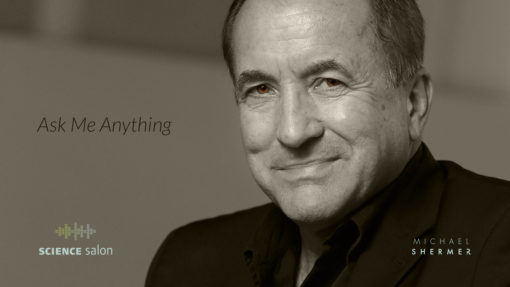
In Science Salon # 100 Michael Shermer presents a special Ask Me Almost Anything (AMA # 6) on: extraterrestrial intelligence, Generic Subjective Continuity, Trump propaganda, Eliminative Materialism, eyewitness testimony, and more.
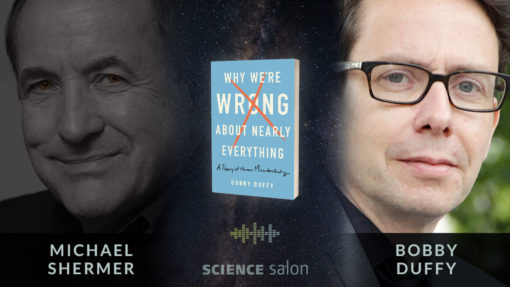
In Science Salon # 99 Michael Shermer speaks with Bobby Duffy about his research into public perception across more than 40 countries, offering a sweeping account of the stubborn problem of human delusion: how society breeds it, why it will never go away, and what our misperceptions say about what we really believe.
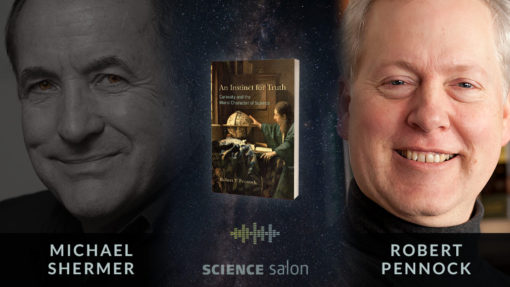
In Science Salon # 98 Michael Shermer speaks with Robert Pennock about his new book An Instinct for Truth: Curiosity and the Moral Character of Science. Taking a virtue-theoretic perspective, Pennock explores curiosity, veracity, skepticism, humility to evidence, and other scientific virtues and vices.
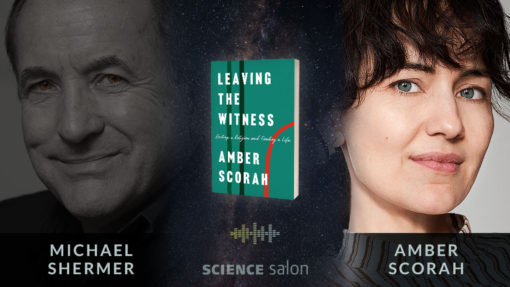
In this revealing conversation Amber Scorah opens the box into the psychology of religious belief to show how, exactly, religions and cults convince members that theirs is the one true religion. A coming of age story of a woman already in her thirties, this unforgettable memoir examines what it’s like to start one’s life over again with an entirely new identity.
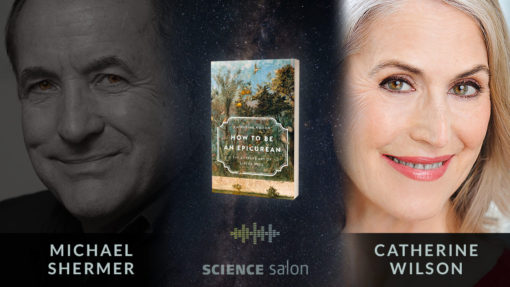
In Science Salon # 96 Michael Shermer speaks with Catherine Wilson about the ancient wisdom of Epicureanism: a philosophy of living well that promoted reason, respect for the natural world, and reverence for our fellow humans.
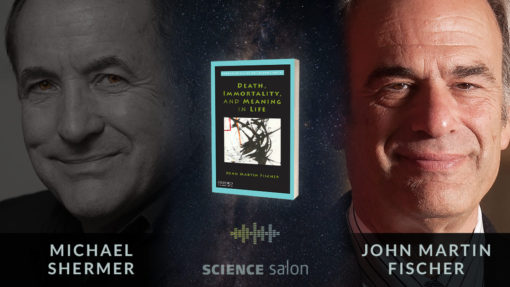
In Science Salon # 95 Michael Shermer speaks with Distinguished Professor of Philosophy John Martin Fischer about his book Death, Immortality, and Meaning in Life — a brief yet in-depth introduction to the key philosophical issues and problems concerning death and immortality.
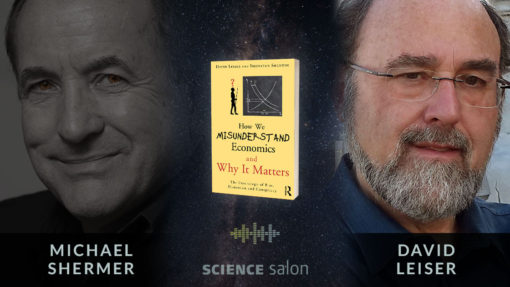
In Science Salon # 94 Michael Shermer speaks with David Leiser about his new book: How We Misunderstand Economics and Why it Matters, diving into the mismatch between the complexities of economics and the constraints of human cognition that lie at the root of our misconceptions.
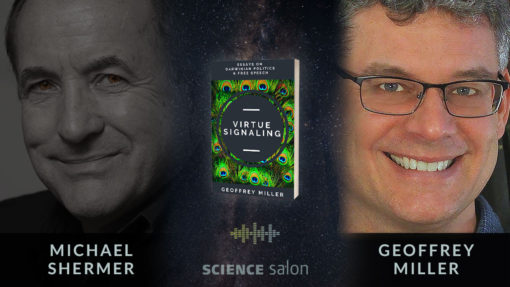
Shermer speaks with the polymathic polyamorous sapiosexual classically liberal evolutionary psychologist Geoffrey Miller about virtue signaling and why we all do it, how it works, why it’s not a bad thing, how it became a derogatory political meme, the role of virtue signaling in the evolution of the moral sentiments, and more…
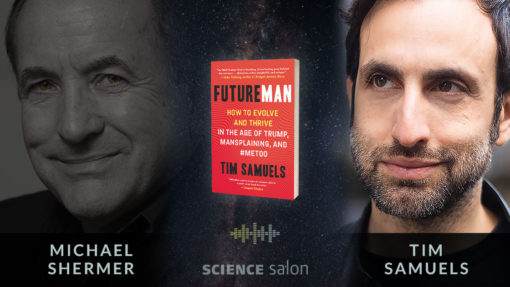
If ever there was an urgent need for a frank understanding of what’s going on with men, it is now. Male rage and frustration have driven resurgent populism, mass shootings, and epidemics of addiction and violence. Powerful men who have abused their positions for decades have been and are being #MeToo-outed and dismissed. The patriarchy, that solid bedrock of male power for thousands of years, seems to be crumbling…
← PREVIOUS
NEXT →




























